In 1945, with the second world war won bar the shouting, Bertrand Russell polished off his brief examination of Friedrich Nietzsche’s contribution to Western thought with the splendid phrase: ‘His followers have had their innings.’ Russell knew that Nietzsche’s followers didn’t just mean the Nazis. Ten years before Hitler’s acolytes started editing special volumes of Nietzsche’s aphorisms about the Will to Power, the Blond Beast and suchlike, Leon Trotsky declared that ‘the Nietzscheans’ were his natural allies in the creation of the socialist ‘superman’. In fact, from around 1900, Nietzsche was the go-to philosopher for all millennial fanatics, whether they claimed to be left-wing, right-wing or both (National Socialism says it on the tin, after all). In 1945 it seemed to Russell that they had been bowled out by the Democrat, Roosevelt, and the Liberal-turned-Tory, Churchill.
But Nietzsche never went away. Sue Prideaux’s excellently researched and compulsively readable book shows us exactly why. There are essentially two sorts of biographies. Some try to fit the Great Person into the larger world of their era; others try to bring them alive as a timeless human being. Prideaux’s book is very firmly in the second category, packed with insights into the man who ecstatically prophesied the Übermensch (and we’re not talking a thoughtful minicab driver) from his desk. Here he is, recorded by a contemporary witness, ‘struggling to give his lecture. At the lectern, his face almost touching his notebook despite the thick eyeglasses, the words were produced slowly and laboriously, with long pauses in between. Unbearable tension built up as to whether he would be able to complete the task.’ Yet he was also so fine a romantic pianist that his passionate improvisations could reduce Cosima Wagner herself — normally ice-cold to anyone but her adored husband — to a state of fear and trembling.
Prideaux is steeped (as her previous books prove) in the sensibility of the later 19th century. In her hands, we see again a world in which educated men talked about Homer, Sophocles and Plato as though they were near-contemporaries, before trotting off blithely to the nearest brothel — unless they were Nietzsche, in which case they took one look at the girls, fled to the nearest piano, struck a few chords, and ran out into the night. Best of all, she offers far and away the most evocative re-telling anywhere of the central passage of Nietzsche’s life, his friendship with Richard Wagner.
This extraordinary relationship is given to us neither through rose-tinted specs nor cynically, but as a real, complex, all-too-human thing. Here’s Wagner, the self-proclaimed saviour of ‘German art’ (aka his own music), desperately in need of backing for his fund-raising media storm; and here’s Nietzsche, the shy young academic star, yearning for a father-figure, scarcely believing that he is allowed into the intimate presence of the Master himself, happy not only to provide philosophical covering-fire for that gigantic ego, but also to undertake deeply embarrassing missions like buying the custom-made silk underwear which Wagner demanded. We see the two of them mountain-walking and swimming in lakes, talking for hours about Schopenhauer, having the emotional vapours at particularly beautiful sunsets and generally wallowing in ‘an age of male-to-male hero-worship and unashamed emotion’.
Prideaux makes the vital point that it wasn’t just a one-way street: ‘While Nietzsche’s enthusiasm for Wagner is not terribly surprising, Wagner’s enthusiasm for Nietzsche is.’ The relationship was genuinely symbiotic. Germany at this time respected academics probably more than any culture in history, so having the world’s youngest-ever tenured professor of Classics on his team was a real boon for Wagner. For Nietzsche, it meant that his first book, The Birth of Tragedy, was widely greeted by people who would otherwise have completely ignored it: ‘Barons and baronesses who did not necessarily understand the book wrote an assortment of platitudes to show they were in the camp of Wagner.’ Little wonder that Nietzsche never got over Wagner: he was the intimate of Europe’s most famous artistic family, actually asleep in their home when Wagner’s son, Siegfried, was born and their only house guest at Christmas, 1869.
Best of all is Prideaux’s telling of how it all went wrong. Having volunteered as a medical orderly in the Franco-Prussian War, Nietzsche attended the horribly wounded, contracted dysentery and diphtheria and was treated with silver nitrate, opium and tannic acid enemas which destroyed his gut for life. The experience, and his horror at the siege of Paris in 1871, made Nietzsche into a committed European, but ‘Wagner and Cosima were ablaze with vengeful celebratory nationalism’. Whatever you think of Nietzsche, how many of us would have kept our personal opinions to ourselves so as to stay within the charmed circle of the now world-famous Wagners? Nietzsche didn’t. Nor did Wagner drop him, as he did anyone else who dared show any independence of mind. Even when he didn’t need little professors any more, the money for the Bayreuth Festspiele having been triumphantly raised from an ecstatically victorious Germany, Wagner kept Nietzsche close: he was present among the nobility and royalty of Europe at the laying of the foundation-stone and even rode back to town in Wagner’s personal carriage, at the Meister’s side. It took a black-comic misunderstanding which could come straight out of Curb Your Enthusiasm to finally kill things (like so much else in Nietzsche’s life, the truth was obscured for generations by the machinations of his appalling sister, Elizabeth). Wagner, genuinely concerned about his friend’s growing eccentricity, wrote a well-intentioned letter to Nietzsche’s doctor, suggesting that the problem was excessive masturbation, which should be cured by marriage. Unfortunately, the letter fell into Nietzsche’s hands.
It’s wonderful stuff, though this concentration on personal matters can leave historical nits to pick. Did Nietzsche suddenly decide to leave Bonn in 1865 partly to keep his career politically clean? He left on the very day his own student drinking-and-duelling society was summoned before the university authorities for anti-Prussian activities, and others have suspected a link, but it doesn’t even arise here. And then, just as Nietzsche was setting out on his stellar academic career, Prussia whipped Austria in by far the biggest battle in Europe between 1815 and 1914, before going on to defeat and/or annexe all the other kingdoms in Germany. This was a gigantic and fatal shift for the German culture in which Nietzsche lived and worked, but Prideaux only notes it in a single, bizarrely offhand, and factually wrong line which sounds as though it was plopped in late: ‘In 1866 Prussia had fought and won a short war against Austria and Bavaria.’ Such things are irritating, but they don’t spoil the whole, and nor do the curiously unconfident first few pages: don’t let them put you off.
For this is not just a deeply enjoyable and enlightening book. It’s also an all-too-timely one. Prideaux rightly defends Nietzsche against charges of being an actual precursor of the Nazis, but doesn’t duck the implications in his garish images of blond beasts, supermen and suchlike. Her summing-up of the emotional drive behind his thinking feels awfully familiar when one listens to Putin-loving Bannonites today:
It was exciting to think that the visionary upheavals of geniuses such as Wagner (and himself), while preaching inevitable destruction, were essential to the salvation of humankind from stagnation and mediocrity… this predatory horde of conquerors and masters had no sense of morality or responsibility. Guilt towards the subject population, together with responsibility and consideration for its subjects, was as meaningless to them as the idea of abiding by contracts.
Bertrand Russell forgot that cricket is a game of two innings. The Nietzschean fanatics, left and right, are out at the crease again, their openers scoring briskly against what they see as a hopelessly decadent law-based international order. Are they right? Have we (I trust, dear reader, that you are One of Us) spent too little time in the nets these past decades, thinking the game was safe? Do we still have the line, the pace or the turn to skittle them out? Let’s hope so. Because here’s the truly worrying thing about Friedrich Nietzsche: when he claimed in his final days that his name would be forever linked to a vast catastrophe in human affairs, he was quite obviously mad — and perfectly right.
Got something to add? Join the discussion and comment below.
Get 10 issues for just $10
Subscribe to The Spectator Australia today for the next 10 magazine issues, plus full online access, for just $10.
You might disagree with half of it, but you’ll enjoy reading all of it. Try your first month for free, then just $2 a week for the remainder of your first year.

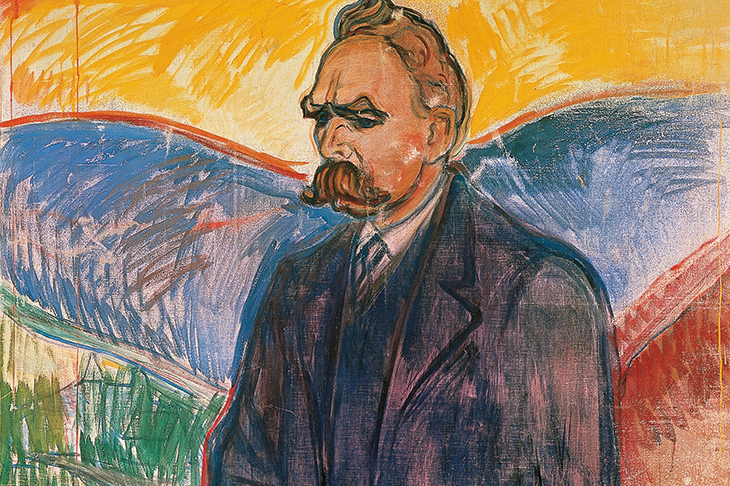
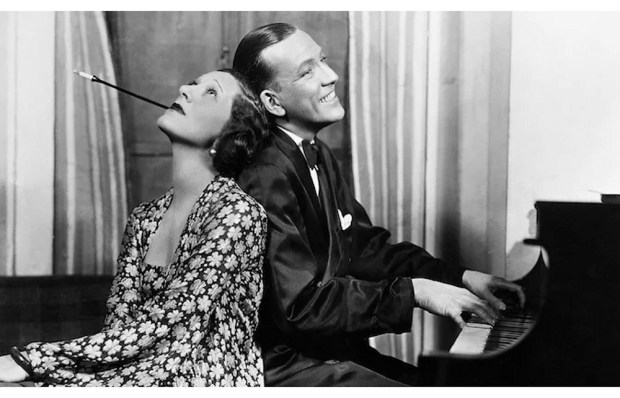

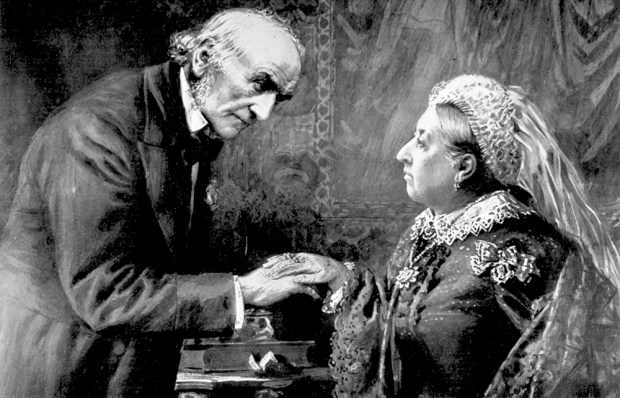
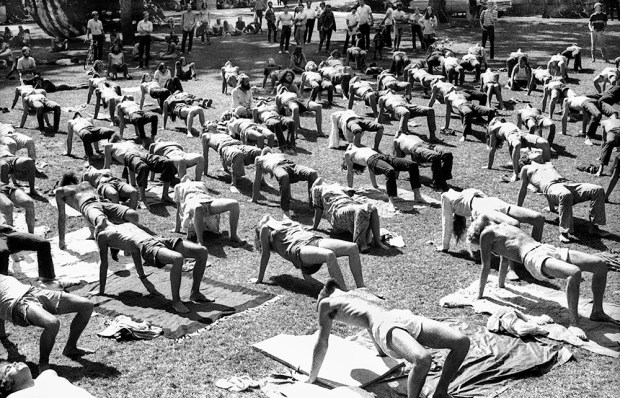

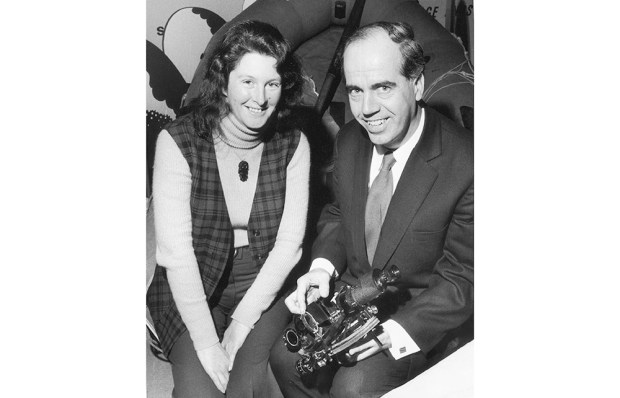






Comments
Don't miss out
Join the conversation with other Spectator Australia readers. Subscribe to leave a comment.
SUBSCRIBEAlready a subscriber? Log in